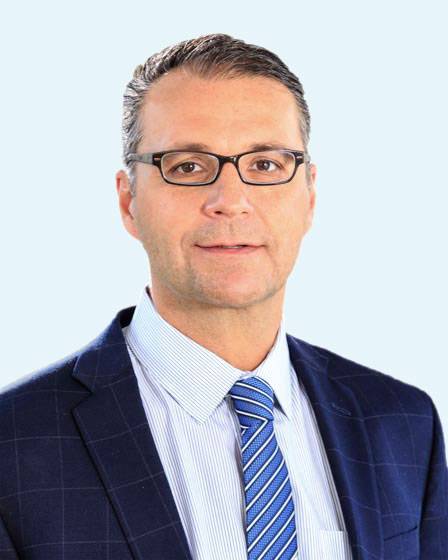
Thomas Bernik, MD, chief of vascular surgery at Englewood Health and part of the Englewood Health Physician Network.
Doctors use the term “vascular system” to refer to the many roadways of arteries and veins that carry blood, oxygen, and nutrients throughout the body. When the flow through these vessels is interrupted, the body cannot function properly.
If you have been diagnosed with a vascular malfunction, such as hardening of the arteries, it may be time to consult with a vascular surgeon. Englewood Health has distinguished itself as a leader in the field of vascular surgery; in fact, Healthgrades® recently named the hospital one of America’s 50 Best Hospitals for vascular surgery. We recently sat down with Thomas Bernik, MD, chief of vascular surgery at Englewood Health and part of the Englewood Health Physician Network, to learn more.
What are the common vascular conditions you see?
Dr. Bernik: At Englewood Health we treat the full range of vascular conditions and disorders, including diseases affecting the arteries and veins. The most common arterial disease we treat is peripheral artery disease, which affects the legs and can lead to pain and an inability to walk or stand. We also treat abdominal and thoracic aneurysms (bulges in the blood vessel wall) and abdominal and thoracic dissections (tears in the lining of the blood vessel wall) as well as carotid artery disease, and kidney and intestinal artery disease. Venous conditions we see include deep vein thrombosis, spider and varicose veins, venous insufficiency and ulcers, and pelvic vein disease. We also specialize in the treatment of pulmonary embolism, a blood clot that occurs in the lungs.
What treatments do vascular surgeons offer?
Dr. Bernik: Our surgeons offer the latest treatments for even the most complex conditions, from abdominal aneurysms to spider veins, to stubborn wounds that won’t heal. In the operating room we use minimally invasive techniques and, in many cases, catheter-based procedures, resulting in shorter hospital stays, less pain, and faster recovery time for patients. Our surgeons are also experts in traditional open surgery, if needed. In all cases, we are committed to bloodless surgery, and our program is known around the world for its excellent results after surgery. Our physician assistants and nurse practitioners are specially trained to provide expert post-operative and follow-up care for our patients.
What’s new in vascular treatment?
Dr. Bernik: Among the new vascular surgery services we offer is a treatment called transcarotid artery revascularization (TCAR). Englewood is one of the first hospitals in the region to offer TCAR, a minimally invasive procedure in which the blocked carotid artery is accessed directly through a small incision in the neck. A special catheter is inserted to temporarily divert blood flow away from the brain while the stent is placed. Blood is filtered during the rerouting step, capturing any tiny pieces of plaque that might break free during the procedure, and then returned to the body. Once the stent is placed, minimizing the risk of future stroke, the catheter is removed, and blood flow in the carotid artery returns to its normal direction. TCAR is particularly well suited for patients who are at high risk of complications from conventional carotid surgery due to age, anatomy, or other medical conditions. This safer approach can lead to better outcomes and faster recovery for such patients. In addition, there has been development in the treatment of complex aneurysms involving kidney and intestinal blood vessels. We are now able to selectively revascularize and preserve all blood vessels while repairing these aneurysms, using a minimally invasive approach through punctures in the arms and groin, requiring only an overnight stay.
Posted September 2019

Thomas Bernik, MD, chief of vascular surgery at Englewood Health and part of the Englewood Health Physician Network.
